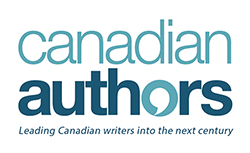DOCUMENTARIES
13TH (2016)
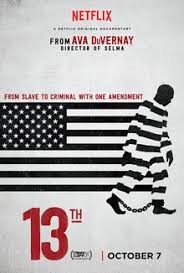
A Netflix documentary exposing racial inequality within the criminal justice system.
Combining archival footage with testimony from activists and scholars, director Ava DuVernay’s examination of the U.S. prison system looks at how the country’s history of racial inequality drives the high rate of incarceration in America.
Angry Inuk (2016)
 An Inuk filmmaker takes a close look at the central role of seal hunting in the lives of the Inuit, the importance of the revenue they earn from sales of seal skins, and the negative impact that international campaigns against the seal hunt have had on their lives.
An Inuk filmmaker takes a close look at the central role of seal hunting in the lives of the Inuit, the importance of the revenue they earn from sales of seal skins, and the negative impact that international campaigns against the seal hunt have had on their lives.
Seal hunting, a critical part of Inuit life, has been controversial for a long time. Now, a new generation of Inuit, armed with social media and their own sense of humour and justice, are challenging the anti-sealing groups and bringing their own voices into the conversation. Director Alethea Arnaquq-Baril joins her fellow Inuit activists as they challenge outdated perceptions of Inuit and present themselves to the world as a modern people in dire need of a sustainable economy.
I Am Not Your Negro (2016)
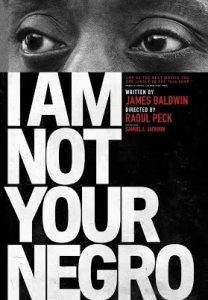 Writer James Baldwin tells the story of race in modern America with his unfinished novel, Remember This House.
Writer James Baldwin tells the story of race in modern America with his unfinished novel, Remember This House.
In his incendiary documentary, Raoul Peck envisions the book James Baldwin never finished. The book was to be a revolutionary, personal account of the lives and successive assassinations of three of his close friends – Medgar Evers, Malcolm X and Martin Luther King, Jr. The result is a radical, examination of race in America, using Baldwin’s original words, spoken by Samuel L. Jackson, and a flood of rich archival material.
Becoming (2020)
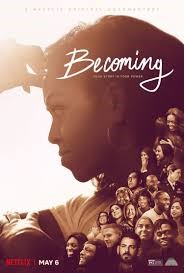 A Netflix documentary following Michelle Obama on her book tour.
A Netflix documentary following Michelle Obama on her book tour.
Join former first lady Michelle Obama in an intimate documentary looking at her life, hopes and connection with others during her 2019 book tour for Becoming.
Black Power Mixtape: 1967-1975 (2011)
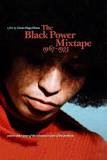 The Black Power Mixtape 1967–1975 is a 2011 documentary film, directed by Göran Olsson, that examines the evolution of the Black Power movement in American society from 1967 to 1975 as viewed through Swedish journalists and filmmakers.
The Black Power Mixtape 1967–1975 is a 2011 documentary film, directed by Göran Olsson, that examines the evolution of the Black Power movement in American society from 1967 to 1975 as viewed through Swedish journalists and filmmakers.
Boss: The Black Experience in Business (2019)
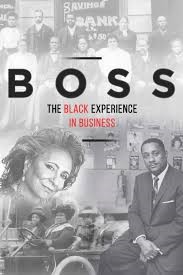
Learn about the untold story of African American entrepreneurship, where skill, industriousness, ingenuity and sheer courage in the face of overwhelming odds provide the backbone of this nation’s economic and social growth.
Kanehsatake: 270 Years of Resistance (1993)
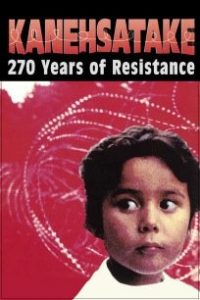 This Canadian documentary portrays the July 1990 showdown between the Mohawk Nation and the predominantly white Quebec town of Oka, which is intent on developing land deemed sacred by the native people. When members of the Mohawk tribe protest plans to expand a golf course into their territory, they form a barricade, leading to an armed standoff with provincial police that becomes increasingly tense, with the possibility of violence looming over the heads of everyone involved.
This Canadian documentary portrays the July 1990 showdown between the Mohawk Nation and the predominantly white Quebec town of Oka, which is intent on developing land deemed sacred by the native people. When members of the Mohawk tribe protest plans to expand a golf course into their territory, they form a barricade, leading to an armed standoff with provincial police that becomes increasingly tense, with the possibility of violence looming over the heads of everyone involved.
Director Alanis Obomsawin—at times with a small crew, at times alone—spent 78 days behind Kanien’kéhaka lines filming the armed standoff between protestors, the Quebec police and the Canadian army. Released in 1993, this landmark documentary has been seen around the world, winning over a dozen international awards and making history at the Toronto International Film Festival, where it became the first documentary ever to win the Best Canadian Feature award.
Let It Fall: Los Angeles 1982-1992 (2017)
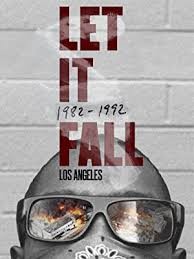 In this documentary, filmmaker John Ridley examines a decade of tensions, civil unrest and events in Los Angeles that culminated in citywide violence following the Rodney King verdict on April 29, 1992.
In this documentary, filmmaker John Ridley examines a decade of tensions, civil unrest and events in Los Angeles that culminated in citywide violence following the Rodney King verdict on April 29, 1992.
An in-depth look at the culture of Los Angeles in the ten years leading up to the 1992 uprising that erupted after the verdict of police officers cleared of beating Rodney King.
Owned: A Tale of Two Americas (2018)
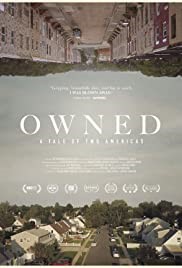 Owned is a fever dream vision into the dark history behind the US housing economy. Tracking its overtly racist beginnings to its unbridled commoditization, the doc exposes a foundational story few Americans understand as their own.
Owned is a fever dream vision into the dark history behind the US housing economy. Tracking its overtly racist beginnings to its unbridled commoditization, the doc exposes a foundational story few Americans understand as their own.
The Skin We’re In (2017)
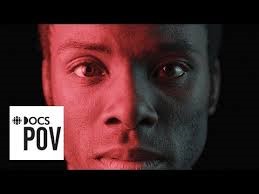 Urgent, controversial, and undeniably honest, The Skin We’re In is a wake-up call to complacent Canadians. Racism is here. It is everywhere. It is us and we are it. Following celebrated journalist Desmond Cole as he researches his hotly anticipated book, this documentary from acclaimed director Charles Officer pulls back the curtain on racism in Canada.
Urgent, controversial, and undeniably honest, The Skin We’re In is a wake-up call to complacent Canadians. Racism is here. It is everywhere. It is us and we are it. Following celebrated journalist Desmond Cole as he researches his hotly anticipated book, this documentary from acclaimed director Charles Officer pulls back the curtain on racism in Canada.
Welcome to Leith (2015)
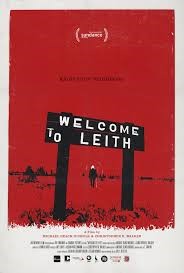 When noted white supremacist Craig Cobb moves into their town, the residents of Leith, North Dakota do what they can to prevent him from taking control of the municipality.
When noted white supremacist Craig Cobb moves into their town, the residents of Leith, North Dakota do what they can to prevent him from taking control of the municipality.
Whose Streets? (2017)
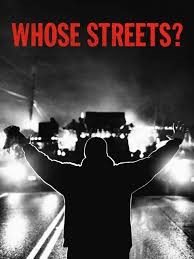 Whose Streets? is a 2017 American documentary film about the killing of Michael Brown and the Ferguson uprising. Directed by Sabaah Folayan and co-directed by Damon Davis.
Whose Streets? is a 2017 American documentary film about the killing of Michael Brown and the Ferguson uprising. Directed by Sabaah Folayan and co-directed by Damon Davis.
An unflinching look at how the police killing of 18-year-old Mike Brown inspired a community to fight back and sparked a global movement.
MOVIES
12 Years a Slave (2013)
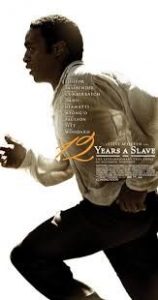 In the antebellum United States, Solomon Northup, a free black man from upstate New York, , is promised a fortnightly job by Brown and Hamilton. However, after arriving in Washington DC, he realizes that he has been sold into slavery.
In the antebellum United States, Solomon Northup, a free black man from upstate New York, , is promised a fortnightly job by Brown and Hamilton. However, after arriving in Washington DC, he realizes that he has been sold into slavery.
Starring: Chiwetel Ejiofor, Michael Kenneth Williams, Michael Fassbender
American Son (2019)
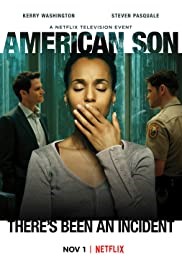 Time passes and tension mounts in a Florida police station as an estranged interracial couple reunite in a Florida police station to help find their missing teenage son.
Time passes and tension mounts in a Florida police station as an estranged interracial couple reunite in a Florida police station to help find their missing teenage son.
Starring: Kerry Washington, Steven Pasquale, Jeremy Jordan
Belle (2013)
 The mixed-race daughter, Dido Elizabeth Belle (Gugu Mbatha-Raw), of Royal Navy Captain Sir John Lindsay (Matthew Goode) is raised by aristocratic Great-uncle Lord William Murray, 1st Earl of Mansfield (Tom Wilkinson) in eighteenth century England.
The mixed-race daughter, Dido Elizabeth Belle (Gugu Mbatha-Raw), of Royal Navy Captain Sir John Lindsay (Matthew Goode) is raised by aristocratic Great-uncle Lord William Murray, 1st Earl of Mansfield (Tom Wilkinson) in eighteenth century England.
The illegitimate daughter of a navy admiral is trained and brought up by her aristocratic uncle and his wife. She grows up to abolish slavery in England.
Starring: Gugu Mbatha-Raw, Matthew Goode, Emily Watson
BlacKkKlansman (2018)
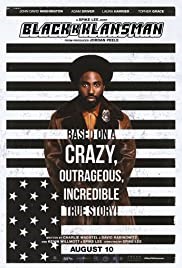 Ron Stallworth, an African American police officer from Colorado Springs, CO, successfully manages to infiltrate the local Ku Klux Klan branch with the help of a Jewish surrogate who eventually becomes its leader. Based on actual events.
Ron Stallworth, an African American police officer from Colorado Springs, CO, successfully manages to infiltrate the local Ku Klux Klan branch with the help of a Jewish surrogate who eventually becomes its leader. Based on actual events.
Ron Stallworth is the first African-American detective to serve in the Colorado Springs Police Department. Determined to make a name for himself, Stallworth bravely sets out on a dangerous mission: infiltrate and expose the Ku Klux Klan. The detective soon recruits a more seasoned colleague, Flip Zimmerman, into the undercover investigation of a lifetime. Together, they team up to take down the extremist hate group as the organization aims to sanitize its rhetoric to appeal to the mainstream.
Starring: John David Washington, Adam Driver, Laura Harrier
Dear White People (2014)
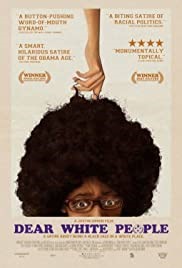 The lives of four black students at an Ivy League college.
The lives of four black students at an Ivy League college.
A campus culture war between blacks and whites at a predominantly white school comes to a head when the staff of a humour magazine stages an offensive Halloween party.
Starring: Tyler James Williams, Tessa Thompson, Kyle Gallner
Do the Right Thing (1989)
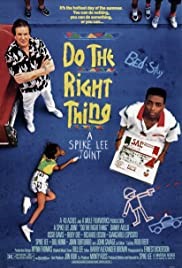 On the hottest day of the year on a street in the Bedford-Stuyvesant section of Brooklyn, everyone’s hate and bigotry smolders and builds until it explodes into violence.
On the hottest day of the year on a street in the Bedford-Stuyvesant section of Brooklyn, everyone’s hate and bigotry smolders and builds until it explodes into violence.
Salvatore “Sal” Fragione (Danny Aiello) is the Italian owner of a pizzeria in Brooklyn. A neighborhood local, Buggin’ Out (Giancarlo Esposito), becomes upset when he sees that the pizzeria’s Wall of Fame exhibits only Italian actors. Buggin’ Out believes a pizzeria in a black neighborhood should showcase black actors, but Sal disagrees. The wall becomes a symbol of racism and hate to Buggin’ Out and to other people in the neighborhood, and tensions rise.
Starring: Danny Aiello, Ossie Davis, Ruby Dee
Fruitvale Station (2013)
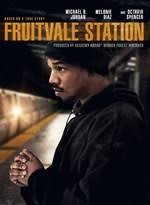 The story of Oscar Grant III, a 22-year-old Bay Area resident, who crosses paths with friends, enemies, family, and strangers on the last day of 2008.
The story of Oscar Grant III, a 22-year-old Bay Area resident, who crosses paths with friends, enemies, family, and strangers on the last day of 2008.
Though he once spent time in San Quentin, 22-year-old black man Oscar Grant (Michael B. Jordan) is now trying hard to live a clean life and support his girlfriend (Melonie Diaz) and young daughter (Ariana Neal). Flashbacks reveal the last day in Oscar’s life, in which he accompanied his family and friends to San Francisco to watch fireworks on New Year’s Eve, and, on the way back home, became swept up in an altercation with police that ended in tragedy. Based on a true story.
Starring: Michael B. Jordan, Melonie Diaz, Octavia Spencer
Get Out (2017)
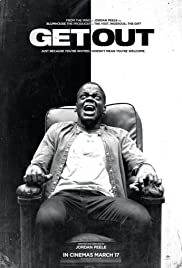 A young African-American visits his white girlfriend’s parents for the weekend, where his simmering uneasiness about their reception of him eventually reaches a boiling point.
A young African-American visits his white girlfriend’s parents for the weekend, where his simmering uneasiness about their reception of him eventually reaches a boiling point.
Chris, an African-American man, decides to visit his Caucasian girlfriend’s parents during a weekend getaway. Although they seem normal at first, he is not prepared to experience the horrors ahead.
Starring: Daniel Kaluuya, Allison Williams, Bradley Whitford
Hidden Figures (2016)
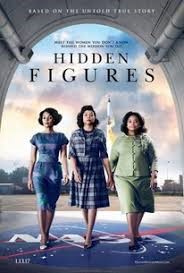 The story of a team of female African-American mathematicians who served a vital role in NASA during the early years of the U.S. space program.
The story of a team of female African-American mathematicians who served a vital role in NASA during the early years of the U.S. space program.
Three female African-American mathematicians play a pivotal role in astronaut John Glenn’s launch into orbit. Meanwhile, they also have to deal with racial and gender discrimination at work.
Starring: Taraji P. Henson, Octavia Spencer, Janelle Monáe
If Beale Street Could Talk (2018)
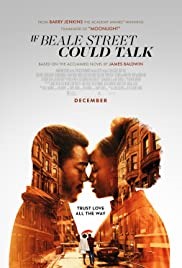 A young woman embraces her pregnancy while she and her family set out to prove her childhood friend and lover innocent of a crime he didn’t commit.
A young woman embraces her pregnancy while she and her family set out to prove her childhood friend and lover innocent of a crime he didn’t commit.
In early 1970s Harlem, daughter and wife-to-be Tish vividly recalls the passion, respect and trust that have connected her and her artist fiancé Alonzo Hunt, who goes by the nickname Fonny. Friends since childhood, the devoted couple dream of a future together, but their plans are derailed when Fonny is arrested for a crime he did not commit.
Starring: KiKi Layne, Stephan James, Regina King
Just Mercy (2019)
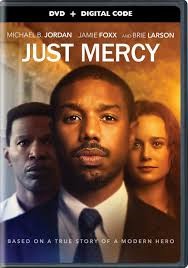 A film based on civil rights lawyer Bryan Stevenson’s work on death row in Alabama.
A film based on civil rights lawyer Bryan Stevenson’s work on death row in Alabama.
After graduating from Harvard, Bryan Stevenson heads to Alabama to defend those wrongly condemned or those not afforded proper representation. One of his first cases is that of Walter McMillian, who is sentenced to die in 1987 for the murder of an 18-year-old girl, despite evidence proving his innocence. In the years that follow, Stevenson encounters racism and legal and political maneuverings as he tirelessly fights for McMillian’s life.
Starring: Michael B. Jordan, Jamie Foxx, Brie Larson
Loving (2016)
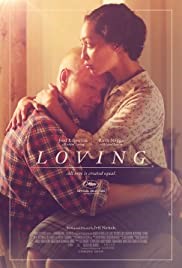 The story of Richard and Mildred Loving, a couple whose arrest for interracial marriage in 1960s Virginia began a legal battle that would end with the Supreme Court’s historic 1967 decision.
The story of Richard and Mildred Loving, a couple whose arrest for interracial marriage in 1960s Virginia began a legal battle that would end with the Supreme Court’s historic 1967 decision.
In 1958, Richard and Mildred Loving, an interracial couple, are arrested and thrown out of their home state of Virginia. Determined to go back to their roots, they approach the Supreme Court.
Starring: Ruth Negga, Joel Edgerton, Will Dalton
Malcolm X (1992)
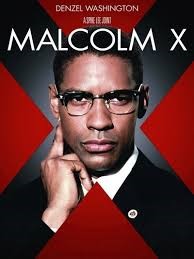 Biographical epic of the controversial and influential Black Nationalist leader, from his early life and career as a small-time gangster, to his ministry as a member of the Nation of Islam.
Biographical epic of the controversial and influential Black Nationalist leader, from his early life and career as a small-time gangster, to his ministry as a member of the Nation of Islam.
A tribute to the controversial black activist and leader of the struggle for black liberation. He hit bottom during his imprisonment in the ’50s, he became a Black Muslim and then a leader in the Nation of Islam. His assassination in 1965 left a legacy of self-determination and racial pride.
Starring: Denzel Washington, Angela Bassett, Delroy Lindo
Marshall (2017)
 The story of Thurgood Marshall, the crusading lawyer who would become the first African-American Supreme Court Justice, as he battles through one of his career-defining cases.
The story of Thurgood Marshall, the crusading lawyer who would become the first African-American Supreme Court Justice, as he battles through one of his career-defining cases.
Thurgood Marshall is a lawyer primarily working to fight against racial prejudice. He takes on a case to defend Joseph Spell, an African American man accused of raping a wealthy Caucasian woman.
Starring: Chadwick Boseman, Josh Gad, Kate Hudson
Remember the Titans (2000)
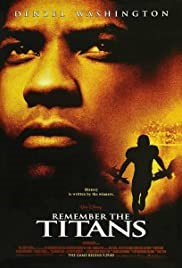 The true story of a newly appointed African-American coach and his high school team on their first season as a racially integrated unit.
The true story of a newly appointed African-American coach and his high school team on their first season as a racially integrated unit.
Remember the Titans is a 2000 American biographical sports film produced by Jerry Bruckheimer and directed by Boaz Yakin. The screenplay, written by Gregory Allen Howard, is based on the true story of African-American coach Herman Boone, portrayed by Denzel Washington, and his attempt to integrate the T. C. Williams High School football team in Alexandria, Virginia, in 1971.
Starring: Denzel Washington, Will Patton, Wood Harris
Selma (2014)
 A chronicle of Dr. Martin Luther King, Jr.’s campaign to secure equal voting rights via an epic march from Selma to Montgomery, Alabama, in 1965.
A chronicle of Dr. Martin Luther King, Jr.’s campaign to secure equal voting rights via an epic march from Selma to Montgomery, Alabama, in 1965.
Although the Civil Rights Act of 1964 legally desegregated the South, discrimination was still rampant in certain areas, making it very difficult for blacks to register to vote. In 1965, an Alabama city became the battleground in the fight for suffrage. Despite violent opposition, Dr. Martin Luther King Jr. (David Oyelowo) and his followers pressed forward on an epic march from Selma to Montgomery, and their efforts culminated in President Lyndon Johnson signing the Voting Rights Act of 1965.
Starring: David Oyelowo, Carmen Ejogo, Oprah Winfrey
The Color of Friendship (2000)
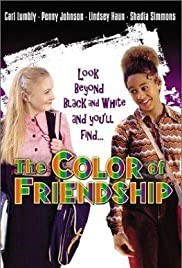 A white South African girl finds herself in a difficult situation when she is sent to spend a term with a black family in America.
A white South African girl finds herself in a difficult situation when she is sent to spend a term with a black family in America.
In 1977, two girls from opposite sides of the world come together and change each other’s lives. Young, white Mahree Bok (Lindsey Haun) lives in apartheid South Africa with her wealthy family. Piper Dellums (Shadia Simmons), the daughter of a black U.S. congressman in Washington, D.C., prepares to welcome Mahree to the U.S. for a semester abroad. Mahree is surprised to find her host family is black, and Piper is stunned that Mahree is white. Each will have to question the assumptions she had.
Starring: Lindsey Haun, Shadia Simmons, Carl Lumbly
The Hate U Give (2018)
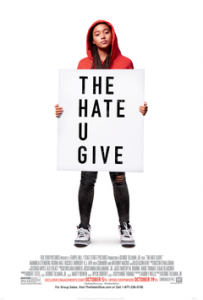 A film based on the YA novel The Hate U Give offering an intimate portrait of race in America.
A film based on the YA novel The Hate U Give offering an intimate portrait of race in America.
Starr Carter, witnesses the fatal shooting of her childhood best friend Khalil at the hands of a police officer. Now, facing pressure from all sides of the community, Starr must find her voice and stand up for what’s right.
Starring: Amandla Stenberg, Regina Hall, Russell Hornsby
The Immortal Life of Henrietta Lacks (2017)
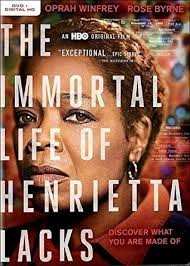 An African-American woman becomes an unwitting pioneer for medical breakthroughs when her cells are used to create the first immortal human cell line in the early 1950s.
An African-American woman becomes an unwitting pioneer for medical breakthroughs when her cells are used to create the first immortal human cell line in the early 1950s.
Deborah Lacks tries to find information about her mother Henrietta. However, the latter’s cancer cells are harvested by scientists to be immortalised, without her consent, which leads to controversy.
Starring: Renée Elise Goldsberry, Sylvia Grace Crim, Reed Birney
TV SHOWS & MINI SERIES
Atlanta (2016 – Comedy, Drama, Music – 4 Seasons)
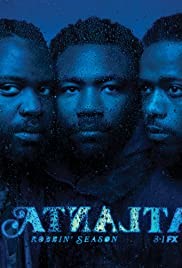 Based in Atlanta, Earn and his cousin Alfred try to make their way in the world through the rap scene. Along the way they come face to face with social and economic issues touching on race, relationships, poverty, status, and parenthood.
Based in Atlanta, Earn and his cousin Alfred try to make their way in the world through the rap scene. Along the way they come face to face with social and economic issues touching on race, relationships, poverty, status, and parenthood.
A single camera comedy that revolves around two cousins on their way up through the Atlanta rap scene whose opposing views on art versus commerce, success and race will make their quest anything but easy. Earnest ‘Earn’ Marks,” a college drop-out, reconnects with his long-buried ambition and sets out to seize the life he imagined for himself when his estranged cousin becomes a sudden star.
Starring: Donald Glover, Brian Tyree Henry, LaKeith Stanfield
Dear White People (2017 – Comedy, Drama – 3 Seasons)
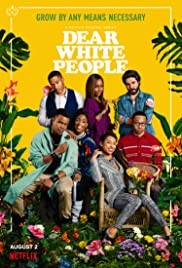 Students of color navigate the daily slights and slippery politics of life at an Ivy League college that’s not nearly as “post-racial” as it thinks.
Students of color navigate the daily slights and slippery politics of life at an Ivy League college that’s not nearly as “post-racial” as it thinks.
Based on the acclaimed film of the same name, this Netflix-original series follows a group of students of color at Winchester University, a predominantly white Ivy League college. The students are faced with a landscape of cultural bias, social injustice, misguided activism and slippery politics. Through an absurdist lens, the series uses irony, self-deprecation, brutal honesty and humor to highlight issues that still plague today’s”post-racial” society. Creator Justin Simien serves as an executive producer.
Starring: Logan Browning, Brandon P. Bell, DeRon Horton
Gentefied (2020 – Comedy – 1 Season)
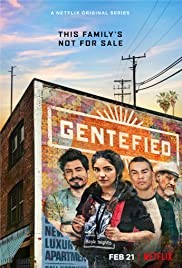 The Morales cousins scramble to save their grandfather’s taco shop — and pursue their own dreams — as gentrification shakes up their LA neighborhood.
The Morales cousins scramble to save their grandfather’s taco shop — and pursue their own dreams — as gentrification shakes up their LA neighborhood.
In Los Angeles, three Mexican-American cousins chase the American Dream, even while that dream threatens the things they hold most dear, including their neighborhood, their immigrant grandfather and the family-owned taco shop.
Starring: J.J. Soria, Carlos Santos, Karrie Martin
Noughts + Crosses (2020 – Drama, Romance, Sci-Fi – 1 Season)
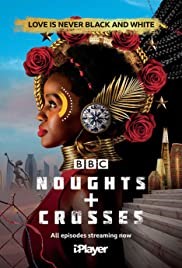 Set in a dangerous, alternate world where racism divides society, Noughts + Crosses follows two young people Sephy and Callum, who live in a dystopian contemporary state divided by colour, but are united by love. Sephy is a member of the black ruling class, whereas Callum is part of the white underclass, and they must fight to be together.
Set in a dangerous, alternate world where racism divides society, Noughts + Crosses follows two young people Sephy and Callum, who live in a dystopian contemporary state divided by colour, but are united by love. Sephy is a member of the black ruling class, whereas Callum is part of the white underclass, and they must fight to be together.
Starring: Masali Baduza, Jack Rowan, Jonathan Ajayi
Self Made: Inspired by the Life of Madam C.J. Walker (2020 – Drama – 1 Season)
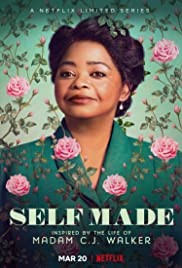 An African American washerwoman rises from poverty to build a beauty empire and become the first female self-made millionaire. Based on a true story.
An African American washerwoman rises from poverty to build a beauty empire and become the first female self-made millionaire. Based on a true story.
The inspiring story of trailblazing African American entrepreneur Madam C.J. Walker who built a haircare empire that made her America’s first female self-made millionaire.
Starring: Octavia Spencer, Tiffany Haddish, Carmen Ejogo
Seven Seconds (2018 – Crime, Drama – 1 Season)
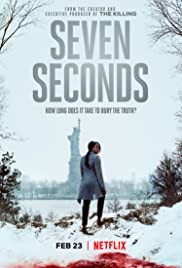 The death of a 15-year-old African American boy in Jersey City sets off a police cover-up and a search for the truth.
The death of a 15-year-old African American boy in Jersey City sets off a police cover-up and a search for the truth.
When 15-year-old black cyclist Brenton Butler dies in a hit-and-run accident — with a white police officer behind the wheel of the vehicle — Jersey City explodes with racial tension. This crime drama explores the aftermath of the accident, which includes an attempted cover-up by the police department and a volatile trial. Assistant prosecutor KJ wants to prosecute the hit-and-run as a hate crime, in addition to a negligent homicide. The longer the case drags on without a resolution, the more tense the situation becomes. Emmy winner Regina King stars as Brenton’s churchgoing mother, Latrice.
Starring: Clare-Hope Ashitey, Regina King, Beau Knapp
Time: The Kalief Browder Story (2017 – Biography, Documentary – 1 Season)
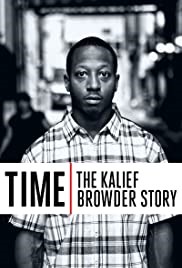 This series traces the tragic case of Kalief Browder, a Black Bronx teen who spent three horrific years in jail, despite not being convicted of a crime.
This series traces the tragic case of Kalief Browder, a Black Bronx teen who spent three horrific years in jail, despite not being convicted of a crime.
The criminal justice system tragically failed 16-year-old Kalief Browder, who spent three years in Rikers Island jail awaiting trial — two of those years in solitary confinement — after being arrested for allegedly stealing a backpack. The case was never prosecuted, the charges were ultimately dropped, and Browder committed suicide after his release. His story and the challenges it poses to a basic understanding of American liberties are central to this six-part documentary. It’s a comprehensive review of the case, using first-person accounts, archival footage, and cinematic re-creations of key scenes from Browder’s life.
Creators: Jenner Furst, Julia Willoughby Nason, Nick Sandow
Top Boy (2011 – Drama – 3 Seasons)
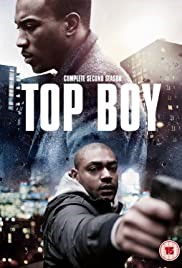 Two seasoned drug dealers return to the gritty streets of London, but their pursuit of money and power is threatened by a young and ruthless hustler.
Two seasoned drug dealers return to the gritty streets of London, but their pursuit of money and power is threatened by a young and ruthless hustler.
This drama takes viewers into the housing estates of East London. There is tension between the drug gangs that operate almost openly and those who strive to live honest lives against the odds in the crime-riddled area. That tension is explored through the interlocking stories of 20-something drug dealer Dushane, who is determined to become the area’s Top Boy, and good-natured but vulnerable teenager Ra’Nell, who is forced to grow up quickly following his mother’s breakdown and enforced absence. The program combines elements of a tense gangster thriller with subtle social realism, some tenderness, innocence and humor.
Starring: Ashley Walters, Kane Robinson, Micheal Ward
United Shades of America (2016 – Documentary, Reality TV, Short – 4 Seasons)
Kamau Bell travels America and dives into issues in America such as racism, incarceration, and more.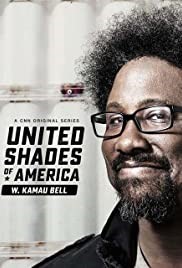
Comic and political provocateur W. Kamau Bell hosts this CNN original documentary series in which he travels to the far corners of America to explore race-based subcultures. Using humor to soften his experiences, Bell willingly subjects himself to awkward situations — like attending a cross-burning, hate-mongering Ku Klux Klan session — to demonstrate “the many diverse and colorful definitions of America,” CNN says. Bell also visits a gated retirement community, experiences inner-city policing, spends time with spring break revelers, speaks to prison inmates, and travels to the Last Frontier.
Starring: W. Kamau Bell, Russell Peters, Mark Nykanen
Watchmen (2019 – Action, Drama, Mystery – 1 Season)
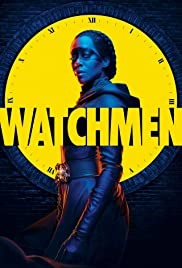 Set in an alternate history where masked vigilantes are treated as outlaws, Watchmen embraces the nostalgia of the original ground-breaking graphic novel of the same name, while attempting to break new ground of its own.
Set in an alternate history where masked vigilantes are treated as outlaws, Watchmen embraces the nostalgia of the original ground-breaking graphic novel of the same name, while attempting to break new ground of its own.
This HBO limited-series is a dystopian superhero drama starring Regina King and Don Johnson. The show begins with the Tulsa Race Massacre of 1921 and then jumps ahead in time to Tulsa, Oklahoma in 2019 where the decedents of those killed in the massacre are targeted by a white supremacist group and experience racial hatred and violence.
Starring: Regina King, Yahya Abdul-Mateen II, Tom Mison
When They See Us (2019 – Biography, Crime, Drama – 1 Season)
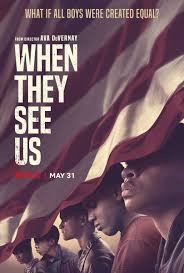
Five teens from Harlem become trapped in a nightmare when they’re falsely accused of a brutal attack in Central Park. A Netflix miniseries from Ava DuVernay about the Central Park Five based on the true story.
In 1989 a jogger was assaulted and raped in New York’s Central Park, and five young people were subsequently charged with the crime. The quintet, labeled the Central Park Five, maintained its innocence and spent years fighting the convictions, hoping to be exonerated. This limited series spans a quarter of a century, from when the teens are first questioned about the incident in the spring of 1989, going through their exoneration in 2002 and ultimately the settlement reached with the city of New York in 2014.
Starring: Asante Blackk, Caleel Harris, Ethan Herisse
VIDEOS
“26 Mini-Films for Exploring Race, Bias and Identity With Students,” from The New York Times
“Activist Shorts: BLM Chicago,” from Black Lives Matter Chicago chapter
“Activist Shorts: BLM Lansing,” from Black Lives Matter Lansing chapter
“Activist Shorts: BLM Los Angeles,” from Black Lives Matter Los Angeles chapter
“Activist Shorts: BLM Toronto,” from Black Lives Matter Toronto chapter
“America Inside Out With Katie Couric: Re-Righting History,” from National Geographic
“Debunking the most common myths white people tell about race,” from NBC News
“How to deconstruct racism, one headline at a time,” from TED Talk given by Baratunde Thurston
“How to talk to kids about race,” from The Atlantic
“It’s hard to understand antiracism without understanding what it means to be racist,” from session with Ibram X. Kendi and Jemele Hill at the Aspen Ideas Festival
“James Baldwin Debates William F. Buckley,” from historic debate at Cambridge University in 1965
“Just belonging: Finding the courage to interrupt bias,” from Ted X Talk given by Kori Carew
“Patrisse Khan-Cullors: What Is the Future of BLM?” from Black Lives Matter Global Network Co-Founder Patrisse Khan-Cullors
“Screaming in the silence: How to be an ally, not a savior,” from Ted X Talk given by Graciela Mohamedi
“So you want to talk about race,” from Talks at Google featuring Ijeoma Oluo
“The dangers of white washing black history,” from Ted X Talk given by David Ikard
WEBINARS
Canadian Race Relations Foundation (CRRF) Webinar Series
https://www.crrf-fcrr.ca/en/programs/webinars
Building Inclusive Organizations
Diversity is a fact. The question of diversity is part of the debate, the conversation, about our democracy and our national identity. Diversity is an unavoidable reality. Inclusion, however, is a choice. The gestures of inclusion, those we ask and those we do not ask, are choices that each of us makes.
Inclusion is the key to deploy our potential. The gestures of inclusion that one can ask are a variety almost infinite, actions, words, looks. These gestures demonstrate to our colleagues, our neighbors and our youth that inclusion is voluntary, intentional and planned. This webinar aims to define concrete actions that could help Canadian companies become more inclusive.
Please note that this webinar will be conducted in the French language.
This webinar occurred on March 11, 2020.
Standing Together Against Hate as Part of International Holocaust Remembrance Day
On January 27, 1945, units of the Red Army liberated the Auschwitz concentration camp. In the years since, Auschwitz, has become symbolic not only of the Holocaust – the murder of 6 million Jewish men, women and children – but of the dangers of unchecked hatred and extremism. Since 2005, the United Nations has declared the day to be an occasion to remember not only the Jewish victims of the Nazi regime, but millions more who were considered by the Nazis to be inferior. But what have we learned since 1945? What challenges do we face as we confront online and real-world manifestations of antisemitism and other forms of hatred? And what can we do to combat the spread of this destructive force?
This webinar occurred on January 23, 2020.
Race Relations in Canada 2019 – A Survey of Canadian Public Opinion and Experience
Canada is one of the most ethnically and racially diverse societies on the planet, and steadily becoming more so over time. At the same time, racism and discrimination remains an underlying reality in Canada, and people with racialized identities and backgrounds face ongoing challenges, both at a personal and an institutional level. The state of race relations in Canada today is not a single story. Some see an uplifting story of dramatic changes from previous generations, and the expanding inclusion of Canadians from different races in all walks of life. Others see an urgent need to address persistent systemic racism that continues to oppress the lives and opportunities of racialized individuals and communities. Both realities exist, and both stories need to be told. In 2019 the Canadian Race Relations Foundation partnered with the Environics Institute for Survey Research to conduct a landmark study of race relations in Canada, which focuses on Canadians’ attitudes, perceptions and experiences as they pertain to important dimensions of race relations. This survey – the first of its kind in Canada – is national in scope and includes significant representation of the country’s largest racial groups (Chinese, Black, South Asian, and Indigenous Peoples) in order to reflect the perspectives of racialized and non-racialized Canadians. The webinar will feature a presentation of the survey results by the study’s director, Dr. Keith Neuman, followed by Q and A.
This webinar occurred on December 16, 2019.
Addressing Anti-Black Racism in our Schools
The purpose of this webinar is to examine how anti-Black racism affects the opportunities for students to succeed. Participants will explore topics on unconscious bias, racism, and discrimination. They will also learn approaches to address anti-Black racism in schools. Participants will leave the webinar with a deeper understanding of the systemic barriers affecting Black students and proactive approaches to close opportunity gaps, including by strengthening culturally responsive teaching practices.
This webinar addresses the following issues: Anti-Black racism and how it manifests in the education system; How privilege, microaggressions and unconscious bias enable anti-Black racism; The impact of anti-Black racism on students; How to challenge systemic barriers that hinder the opportunities for Black students to succeed in school; How to close opportunity gaps, including through culturally responsive teaching; and collaborating with parents and communities to address anti-Black racism.
This webinar occurred on November 29, 2019.
Right wing extremism in Canada
Canada has a rich history of right-wing extremism and neo-Nazism, distinct from, but influenced by, American and European hate movements. It is no longer so marginal, it has inspired terrorist attacks and there will always be victims. Perhaps even more dangerous is the shift of their ideologies that influence our traditional discourse and politics, reducing the social consequences and thus emboldening their supporters. For the first time since the Second World War, there is an officially recognized federal party, obviously neo-Nazi, the Canadian Nationalist Party. Their supporters overlap with the more traditional People’s Party of Canada, which has attracted hate group supporters with its anti-multicultural message. Hate groups calling for the assassination of politicians and non-white Canadians are organizing regular protests in cities across Canada. We are in a cold cultural war with bursts of terrorism. The good news is that we have a game book to win, it’s just a matter of resources. This webinar will provide an overview of the state of hate in Canada, how it is being tackled, the challenges ahead and the avenues it offers.
This webinar occurred on October 29, 2019.
Bois Brule and Flower Beadwork People – the Métis experience in Canada
When we think of the Aboriginal peoples of Canada we may not immediately think of the Métis. But the history of this community is intertwined with the story – indeed the creation – of Canada as it exists today. Sharing many of the experiences as other Aboriginal peoples, the Métis also bore the unfair stigma of being seen as rebels for their support of Louis Riel. Join us as we learn more about Métis history, culture, and the opportunities that Reconciliation offers for a shared future.
This webinar occurred on June 19, 2019.
A Collective Impact is the Ontario Human Rights Commission’s interim report on its inquiry into racial profiling and racial discrimination of Black persons by the Toronto Police Service.
On December 10, 2018, Human Rights Day, the Ontario Human Rights Commission (OHRC) released A Collective Impact, the OHRC’s interim report on its inquiry into racial profiling and racial discrimination of Black persons by the Toronto Police Service (TPS). A Collective Impact provides findings relating to Special Investigations Unit (SIU) investigations of TPS use of force resulting in serious injury or death, describes the lived experiences Black communities have shared during the OHRC’s community engagement, and offers a review of legal decisions.
The OHRC has serious concerns about racial profiling and racial discrimination of Black people by the TPS in use of force; stops, questioning and searches; and charges. For example, between 2013 and 2017, according to data obtained from the SIU, a Black person was nearly 20 times more likely than a White person to be involved in a fatal shooting by the TPS.
This webinar occurred on March 28, 2019.
Our Daughters and our Mothers: The Tragedy of the Missing and Murdered Indigenous Women and Girls
In 2014, a report prepared by the RCMP stated that 1,181 Indigenous women were murdered or went missing between 1980 -2012. During the same period, Indigenous women and girls, who make up only 4% of the female population in Canada represented 16% of all female homicides. In response to advocacy from the Indigenous community, the government of Canada, in 2015, established a National Inquiry to shed light on this tragedy, and to understand examine and report on the systemic causes of all forms of violence against Indigenous women and girls. The mandate of the Commission is drawing to an end, but the work must continue. Our speakers today will talk about the work of the commission and what it means to all Canadians and to the national projects of healing and reconciliation.
This webinar occurred on December 5, 2018.
30 Years After the Promulgation of the Employment Equity Act
Addressing the challenges of racial discrimination starts by accurately measuring the social processes leading to exclusion. The visible minority concept, widely used in Canada to that effect, has recently been the object of raising criticism. This presentation preliminary research results and possible avenues for improvement considered by Statistics Canada.
Featuring Laetitia Martin of Statistics Canada.
This webinar occurred on October 4, 2018.
To what extent do Canadians perceive there to be a threat of homegrown terrorism in their country today? And is that threat more likely to come from radicalized Muslims or white supremacists? The Angus Reid Institute and the Canadian Race Relations Foundation partnered on a nationwide survey of 1,509 Canadians that asked these and other questions about the dangers of radicalization in Canadian communities. ARI Research Associate Ian Holliday will present findings from the study and answer questions about this nuanced subject.
This webinar occurred on July 13, 2018.
How Inclusive Are Canadians @ 150+: Public Opinion and Vulnerable Group Experiences
Canada has an international reputation as a diverse, inclusive society which in some respects is well deserved and in others falls far short. This presentation will address how Canada is doing today in realizing this aspiration from the perspective of both broad public opinion and the personal experiences of individuals from racialized and religious minorities.
This webinar occurred on July 12, 2018.
Reconciliation: Beyond Canada 150
For Indigenous peoples, Reconciliation is about much more than having an opportunity to wear their regalia and dance during Parliament Hill celebrations for Canada’s 150th birthday. Reconciliation means more than words, be they apologies for past grievances, or empty promises about better days ahead. Meaningful Reconciliation will only start when Canada takes concrete actions to address the confiscation of Indigenous lands and attendant resources, actions that will help First Peoples become true partners in the prosperity enjoyed by the most recent immigrants to these territories.
This webinar occurred on June 21, 2018.
Discussing the Legacy of Kathleen Livingstone
This webinar focused on the past and present legacy of Kathleen Livingstone, the Congress of Black Women of Canada (CBWC), and Congress of Black Women (CBW) of Ontario Incorporated.
This webinar occurred on March 22, 2018.
International Holocaust Memorial Day
On January 27 1945, The Red Army reached and liberated Auschwitz, the largest of the Nazi death camps. Although the war would claim many more lives before the collapse of the Third Reich in May 1945, the date has been chosen by the United Nations to remember all of the victims of Nazi regime and its collaborators. Six million Jews, 200,000 Romani, 250,000 disabled persons who were considered ‘life unworthy of life,’ and 9,000 members of the LGBTQ community perished in the perverted Nazi pursuit of racial purity.
The Holocaust was not the first case of genocide in history, let alone in the 20th century. Nor, tragically, was it even the last. But despite humanity’s seeming inability to learn the lessons of history, we are fortunate that so many survivors of the Holocaust have continued to dedicate themselves to public education. They tell their stories with the hope that the dream of “never again” can be realized for all of us. We were honoured to welcome Vera Schiff and Andreas Mayer to this very special webinar and welcome you to hear their stories and their reflections.
This webinar occurred on January 25, 2018.
The Black Experience Project began with a central question: “what does it mean to be Black in the GTA.” Launched in 2010, the project is a research study that examines the lived experiences of individuals who self-identify as Black and/or of African heritage living in the Greater Toronto Area. Following a lengthy period of community consultation, the research phase of the project engaged more than 1500 persons across the GTA in detailed and in-depth interviews on a variety of topics related to their experiences.
This webinar occurred on December 13, 2017.
Racism can feel like the problem that won’t go away. We spend a lot of time talking about it but are we really getting better at answering the really important questions? If, as the song says, that “you’ve got to be taught to hate” then what are we doing as parents, friends and citizens to ensure that the lessons of hatred are not spread? How do we educate ourselves – ask questions that make us feel uncomfortable – on such an explosive issue? When being uncomfortable makes us want to turn away, how do we keep ourselves focused and engaged?
This webinar occurred on March 30, 2017.
Countering Racism: Lessons learned from the Holocaust
Following the end of the Second World War, as the full horrors of Nazism and the Holocaust were revealed, few would have believed that extreme right wing ideologies could ever regain credibility. Were we wrong? Whether proclaiming themselves to be Klan, Nazi, neo-Nazi or hiding under the convenient umbrella of the alt-right, many of the old demons are re-appearing. How big a problem do we have and what can the lessons of the Holocaust inform our current fight against racism and the ongoing presence of right wing extremism in Canada?
This webinar occurred on January 30, 2017.
Online hate in Canada: the growing reality and how to deal with it
Sections 318 and 319 of the Criminal Code of Canada make it a criminal offence to advocate genocide, publicly incite hatred, and willfully promote hatred against an “identifiable group” which is defined as any section of the public distinguished by colour, race, religion, national or ethnic origin, age, sex, sexual orientation or mental or physical disability. Section 2 of the Canadian Charter of Rights and Freedoms guarantees freedom of thought, belief, opinion and expression to all Canadians. However, all Charter rights are subject to reasonable limits that can be demonstrably justified in a free and democratic society.
Regulations under the Broadcasting Act prohibit any licensee from broadcasting or distributing programming that contains abusive comments about individuals or groups – comments that would expose an individual, group, or class of individuals to hatred or contempt on discriminatory grounds.
Although these regulations apply to radio, specialty services, broadcast television and pay television, Internet-based communications do not fit the definition of “broadcasting.” The internet has become an essential means for people to access information and services but the downside of this unparalleled information exchange is that, alongside its many valuable resources, it also offers a host of offensive materials – including hateful content – that attempt to inflame public opinion against certain groups of people.
Our panel of experts addressed issues such as: What is the nature of online hate in Canada? Why is it so difficult to address online hate? What are the links between online hate and racist violence or radicalization?
This webinar occurred on November 28, 2016.
Every June, the CRRF joins the rest of Canada in celebration of National Aboriginal History Month to honour the contributions and cultures of First Nation, Inuit and Métis communities.
In August 2016 we hosted a webinar as a follow-up to National Aboriginal History Month to find out more about reconciliation and how everyone can implement reconciliation with Indigenous peoples in order to work towards a diverse and inclusive society.
The wonderful speakers for this event were Niigaan Sinclair, Brenda St. Germain, and Alexandria Wilson.
This webinar occurred on August 1, 2016.
The CRRF hosted a webinar on the subject of story-telling, featuring a panel of story-tellers who will be giving tips on the art of story-telling to those who will be facilitating the Youth Video Challenge during the summer of 2016.
This webinar occurred on June 28, 2016.

